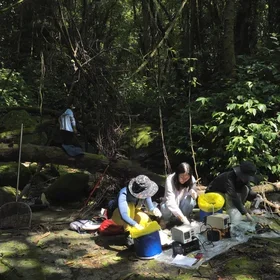In his article "Chernobyl shows how mass mobilizations saved Europe and doomed the Soviet Union," published in The Conversation, Nonprofit Management Senior Lecturer Dr. Greg Witkowski discusses the historical lessons of HBO's mini-series.
“I used to conduct research about Communist mass mobilizations. Now I focus on how governments and charities respond to disasters. So, of course, I watched Chernobyl with great interest and appreciate the window it opens into the strengths and weaknesses of the Soviet state," he writes.
As Dr. Witkowski mentions in the article, as well as in his book The Campaign State, communist regimes used mass mobilizations to handle a multitude of challenges. In Chernobyl, hundreds of thousands of Soviet citizens flocked to the disaster site to take on difficult jobs and effectively stopped the damage from potentially contaminating half of Europe.
The eighth and last leader of the Soviet Union, Mikhail Gorbachev, wrote in 2006 that the “Chernobyl catastrophe was a historic turning point” responsible for his government’s unraveling. Once people living in communist countries began to rebel against mobilizations and the rest of the state’s demands on their lives, their governments collapsed, including the Soviet state itself, Dr. Witkowski writes.
Read the full article on The Conversation and learn more about the M.S. in Nonprofit Management at Columbia University’s School of Professional Studies.


